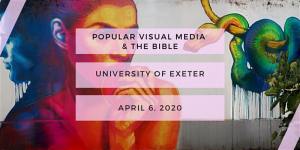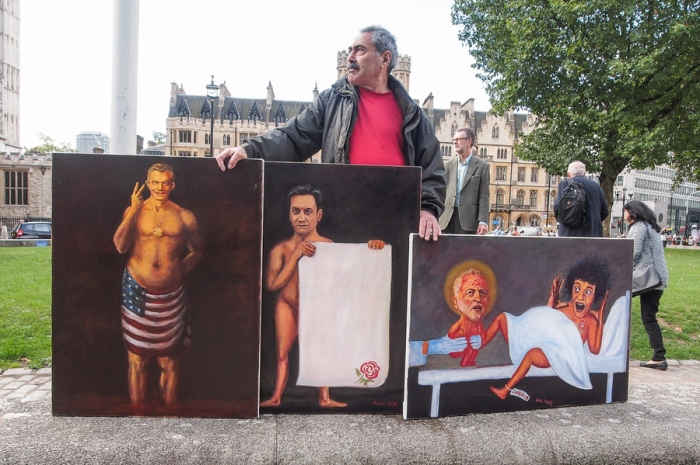The Popular Visual Media and the Bible Conference, hosted by the University of Exeter, will now be run as an online/digital conference, on Mon April 6, 2020, 09:00 – 17:30 BST. Enrol here to view the conference online (no charge).
We will explore the varied relationships between the Bible and contemporary popular visual media (including TV, video games and fantasy literature)
Our conference schedule is as follows (subject to change):
9:30 – welcome
9:40 – 10:30 Panel 1
Siobhan Jolley (University of Manchester)– “I can’t be physical with you” – Reimaging John 20:17 through Fleabag (S2)
Laura Carlson Hasler (Indiana University) – The “Good” Book?: Protestant Television Without the Bible
10:30 – 10:45 Break
10:45 – 12:00 Panel 2
Bea Fones (Durham University) – Daddy Issues: Angelic(Mis)Conceptions and Gender Binaries in the CW’s Supernatural
Mat Collins (University of Chester) – Subversive Screenings: Rethinking Genesis 22 in Popular Visual Media
Rebekah Welton (University of Exeter)- Sibling rivalries and reconciliation in Supernatural: God, the Darkness and Genesis 1:1-5
12-1 Lunch
1:00 – 2:15 Panel 3
Tom de Bruin (Newbold College) – Reception of the Bible in My Little Pony and Christian Apocrypha
Stephanie O’Connor (Dublin City University)– The Batman and the Bible
Zanne Domoney-Lyttle (University of Glasgow)– Wrestling with the Bible: “The Monday Night Messiah”, a “David and Goliath Battle”, and other ways the Bible influences pro-wrestling
2:15 – 2:30 Break
2:30 – 3:30 Panel 4
Tim Hutchings (University of Nottingham)– “My Jesus Would Be Chunky” Visualising Virtue and Vice in a Christian Videogame
David Tollerton (University of Exeter)– Anti-Judaism in English History and the strange moment when Doctor Who appeared to propagate biblical supersessionism
3:30 – 4:30 Keynote
Holly Morse (University of Manchester)– Serpentine Saviours and Woke Women: Twenty-First Century Television Goes Back to the Beginning






